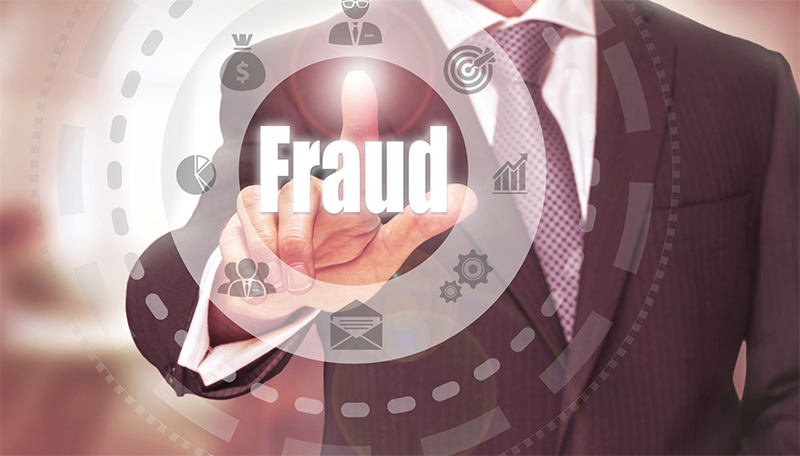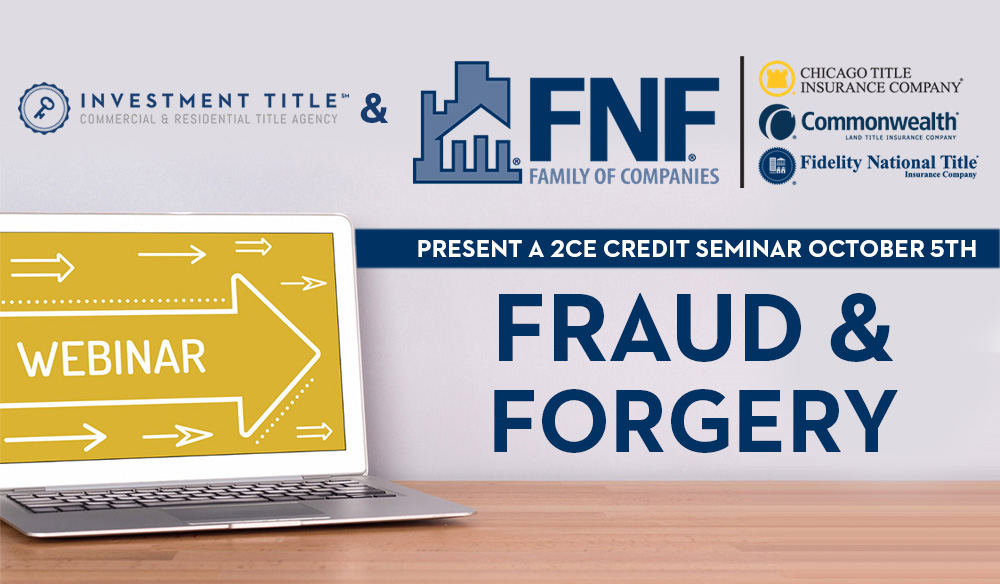Crisis And Real Estate Fraud: What To Watch For When You’re Buying Or Investing In A Home
If you’ve experienced or had a concern related to fraud recently, you’re not alone. Fraud spikes during times of crisis and the title industry is no exception. Thankfully, there are some best practices that every policyholder can follow to mitigate risk and protect their assets.
Educating buyers, sellers, and any other major stakeholders is the best line of defense against real estate and title-related fraud. Each party involved should take extreme caution when sharing and obtaining information. Below we’ll walk you through some of the common red flags associated with title insurance and homeownership to better prepare for high-risk situations.
Inconsistent Information
Since real estate often include multiple parties, they’re an easy target for fraud. Be sure there are no suspicious changes related to contact information, wiring instructions, methods of communication, or banking information. Fraudsters rely on gaps in information, so always obtain, authentic information, and fine tune the details around these transactions.
Time-Sensitive Communications
If you’re getting ready to close a transaction, be VERY skeptical of any emails, text messages, or phone calls that demand immediate action. Do not give out information related to a wire transfer when the timeline is accelerated or there are last-minute changes. A legitimate title insurance company won’t rush or demand anything of you when it comes to your money or your property.
“Free-and-clear” Properties
If you own a property that is “free and clear”, meaning there is no mortgage debt or other legal encumbrances such as a lien, you’re more likely to be targeted. Fraud is even more likely if you (the owner) or someone you’re renting to is not occupying the home. Yes – all homeowners and investors look forward to paying off a mortgage – but outright ownership also comes with certain risks when you don’t have protections like title insurance in place.
Background of Seller/Owner
Does the value of a property of you’re looking at seem too good to be true? If the alleged seller of the property is not on the title or has owned the property for a short amount of time, this could indicate an illegitimate sale. You have likely heard similar stories in the news – an aspiring homeowner finds their dream home and makes a deposit for “x” percent of the asking price only to find themselves out of a home and their cash.
Bonus tip: Most fraudsters will avoid negotiating and agreeing to appointments, whereas motivated sellers will want to work with you. If the seller is demanding specific terms or seems uncooperative in general, it’s best to steer clear of them.
Mortgage Relief Scams
You may receive a phone call or email from someone claiming to reach out on behalf government housing assistance program. These fraudsters will ask for a large, upfront fee in return for mortgage relief that they have no intention of actually providing – let alone the authority or financial backing to do so. They’re banking on the fact that you won’t contact your loan provider because you’re afraid you might lose your home faster. Avoid this type of “quick fix” altogether, especially when you’re already vulnerable
While buying, selling, or flipping a home is a huge achievement, doing so also positions you to be a victim of real estate scams. And if you’re feeling pressured or uncomfortable when this happens, there’s a good chance someone is trying to dupe you. More companies and processes are digitizing every single day – will you ride the wave of opportunity or get caught in the undertow?






